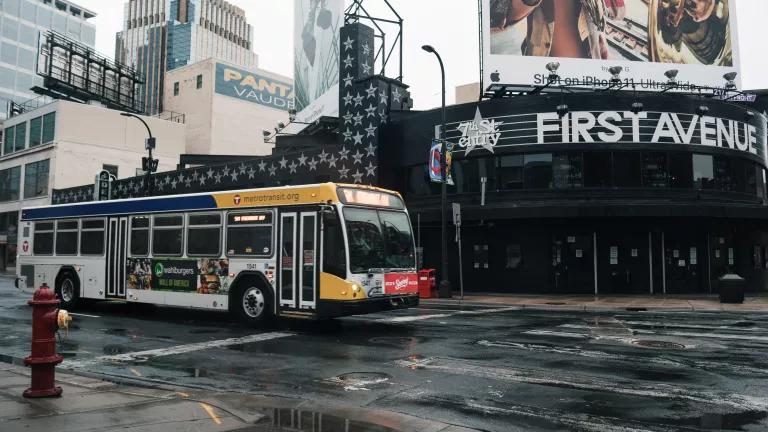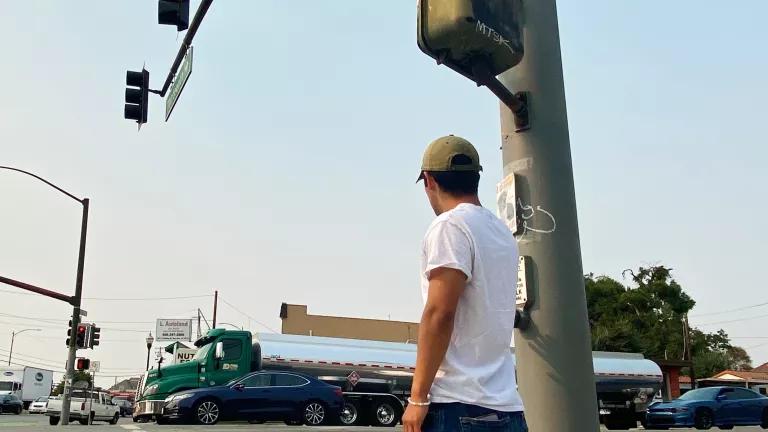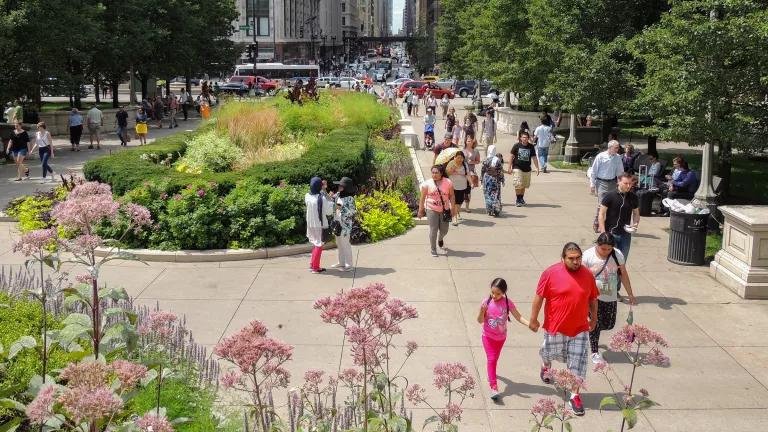On the Precipice of a Transportation Revolution
The pending Build Back Better legislation marks the beginning of a decades long battle to reach transportation carbon neutrality and more equitable communities across the United States.

The future of transportation needs to be safe, equitable and sustainable.
We are on the precipice of the most significant investment in transportation since the creation of the federal highway system in the 1950s. The bipartisan infrastructure bill makes some important investments, especially in transit and rail infrastructure. Now the House Transportation and Infrastructure Committee (T & I) has passed a complementary bill necessary to provide support for equity, cleaner mobility, and clean water. This budget reconciliation proposal passed in T & I in a vote of 37-29 after a 15 hours of debate this Tuesday, and it now moves forward as part of the Build Back Better agenda which the Senate must pass and send to the President’s desk as soon as possible to address pressing crises.
There are three especially crucial provisions for transportation climate and equity in the T&I bill:
- $4 billion for Community Climate Incentive Grants
- $10 billion for a new Affordable Housing Access Program
- $4 billion for Neighborhood Access and Equity Grants
The Community Climate Incentive Grants will create a greenhouse gas performance metric for the national highway system and provide the Department of Transportation (DOT) with funding to design a structure of incentives, consequences, and guidance for states to meet their emissions reduction goals. This creates a much-needed roadmap for the U.S. transportation system to meet carbon neutrality. It also has direct funding for projects like electric vehicle charging infrastructure, high-capacity transit, upgraded bike and pedestrian networks, and transportation-demand-management programs to help reduce solo-driving. And in a creative move, the bill directs three-quarters of this funding to cities and metropolitan areas where the rubber meets the road when it comes to fighting climate change since that’s where most of us live and work.
The Affordable Housing Access program, which will put $10 billion toward connecting affordable housing to transit, will support urban environments that reduce driving. This program could mean families can thrive with one or no cars per household, saving families money while better connecting communities and cutting carbon emissions. The program is also uniquely designed as a joint program between the Department of Housing and Urban Development and DOT, which in coordination with historic housing investments in the Build Back Better agenda, will deliver more affordable homes nationwide. The affordable housing crisis warrants such holistic investments towards equitable transit-oriented development as evidenced by growing public demand for solutions. For example, exit polling from the California recall election this week found that 1-in-5 Californians cite homelessness as the biggest issue facing the Golden State and a new survey of public opinion in 20 large and rapidly growing metropolitan areas identifies housing as a leading concern. And this crisis exacerbates and is exacerbated by the COVID-19 pandemic, with widespread evictions which hit Black and brown communities hardest as a new report describes.
The Neighborhood Access and Equity Grants will help to right the historic racial inequities of our highway system by providing funding to tear down highways that divided disadvantaged neighborhoods, build new connecting infrastructure, and help mitigate the damage. This program delivers a flexible, large array of eligible activities for local and state grantees to select, including construction of noise barriers and measure to reduce air pollution, dirty stormwater runoff, and heat-island effects that harm neighborhoods. Such investments are overdue, since these community tragedies are all-too-common, playing out in Baltimore New Orleans, Syracuse and other cities. And sadly the past isn’t even past as evidenced by a South Carolina highway project that an ill-conceived plan would ram through Black and Latino neighborhoods.
Including these programs in the Build Back Better legislation marks the beginning of a decades long battle to reach carbon neutrality and more equitable communities across the United States. They ensure we put climate and equity priorities in the center of our investments. These programs start us down the path to a just, equitable and clean transportation future.



